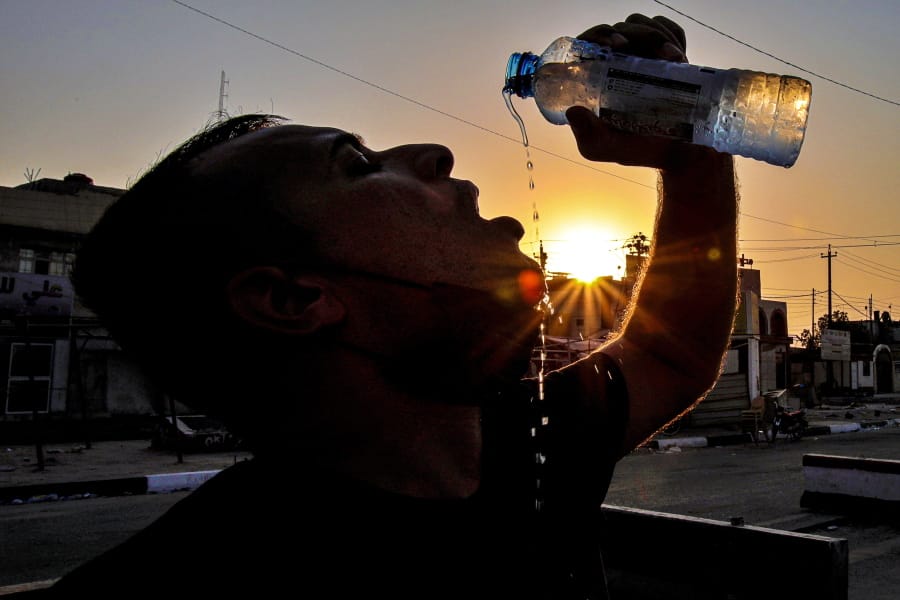BASRA, Iraq — In Iraq’s oil-rich south, the scorching summer months pose painful new choices in the age of the coronavirus: stay at home in the sweltering heat with electricity cut off for hours, or go out and risk the virus.
This is Zain al-Abidin’s predicament. A resident of al-Hartha district, in Basra province, al-Abidin lost his job due to pandemic-related restrictions. During the day he listens helplessly to his 4-month old daughter cry in the unbearable heat, too poor to afford private generators to offset up to eight-hour power cuts.
“I have no tricks to deal with this but to pray to God for relief,” he said.
As temperatures soar to record levels this summer — reaching 125 Fahrenheit in Baghdad last week — Iraq’s power supply has fallen short of demand yet again, creating a spark for renewed anti-government protests. Iraq has imposed a strict lockdown and 24-hour curfew. So families have to pump fuel and money into generators or, if they can’t, suffer in stifling homes without air conditioning.
State coffers were slashed because of an economic crisis spurred by falling oil prices and the pandemic, leaving little for investment to maintain Iraq’s aging electricity infrastructure. Importing additional power is tied up in politics. On one side, Iranians demand overdue payments on energy they already provided Iraq. On the other, the U.S. is pushing Baghdad to move away from Iran and strike energy deals with Gulf allies, according to three senior Iraqi government officials. The officials spoke on condition of anonymity in line with regulations.
Power cuts, coinciding with stay-at-home restrictions and scorching temperatures have extended into Lebanon and Syria, two countries also teetering on the brink of economic collapse.
In Lebanon, residents suffer from power cuts lasting up to 20 hours a day in Beirut even as humidity climbs to above 80 percent, adding to public outrage over the country’s severe financial crisis. Neighborhood generators have had to switch off to give their engines a break and to ration fuel, causing a run on candles and battery-operated lamps.
Like Iraq, blackouts in Lebanon have been a fixture of life, largely because of profiteering, corruption and mismanagement, ever since the 1975-1990 civil war.
In Syria, nearly a decade of war has left infrastructure in shambles and electricity cuts are frequent. Last week, power was off for hours even as temperatures in Damascus reached a record-breaking 118 degrees.
In Baghdad, the roar of generators punctuates daily outages like clockwork. Iraqis find short-lived respite by using public showers set up on the street. The heat was blamed for an explosion at a federal police weapons depot.
“We bring our children downstairs and spray them with a hose to cool them down,” said Ahmed Mohamed, in Baghdad.
Reforms in the electricity sector have been stymied by protests and the vested interests of private generator companies, some with connections to political figures. Public reluctance to pay the state for electricity has long flummoxed Iraqi officials.
In the summer of 2018, poor service delivery prompted destabilizing protests in Basra. The following year, mass anti-government protests paralyzed Baghdad and Iraq’s south, as tens of thousands decried the rampant corruption that has plagued delivery of services, including electricity.



